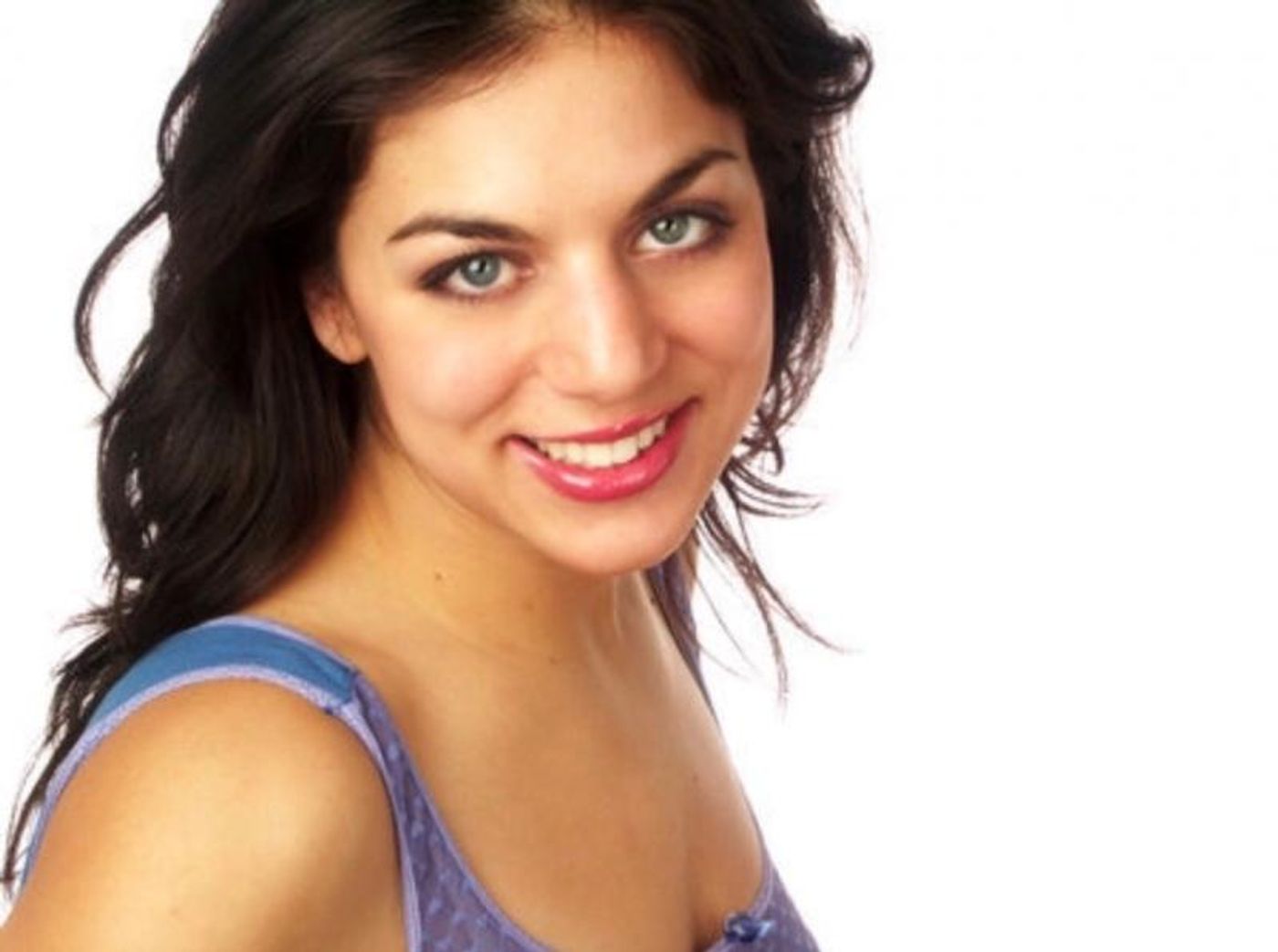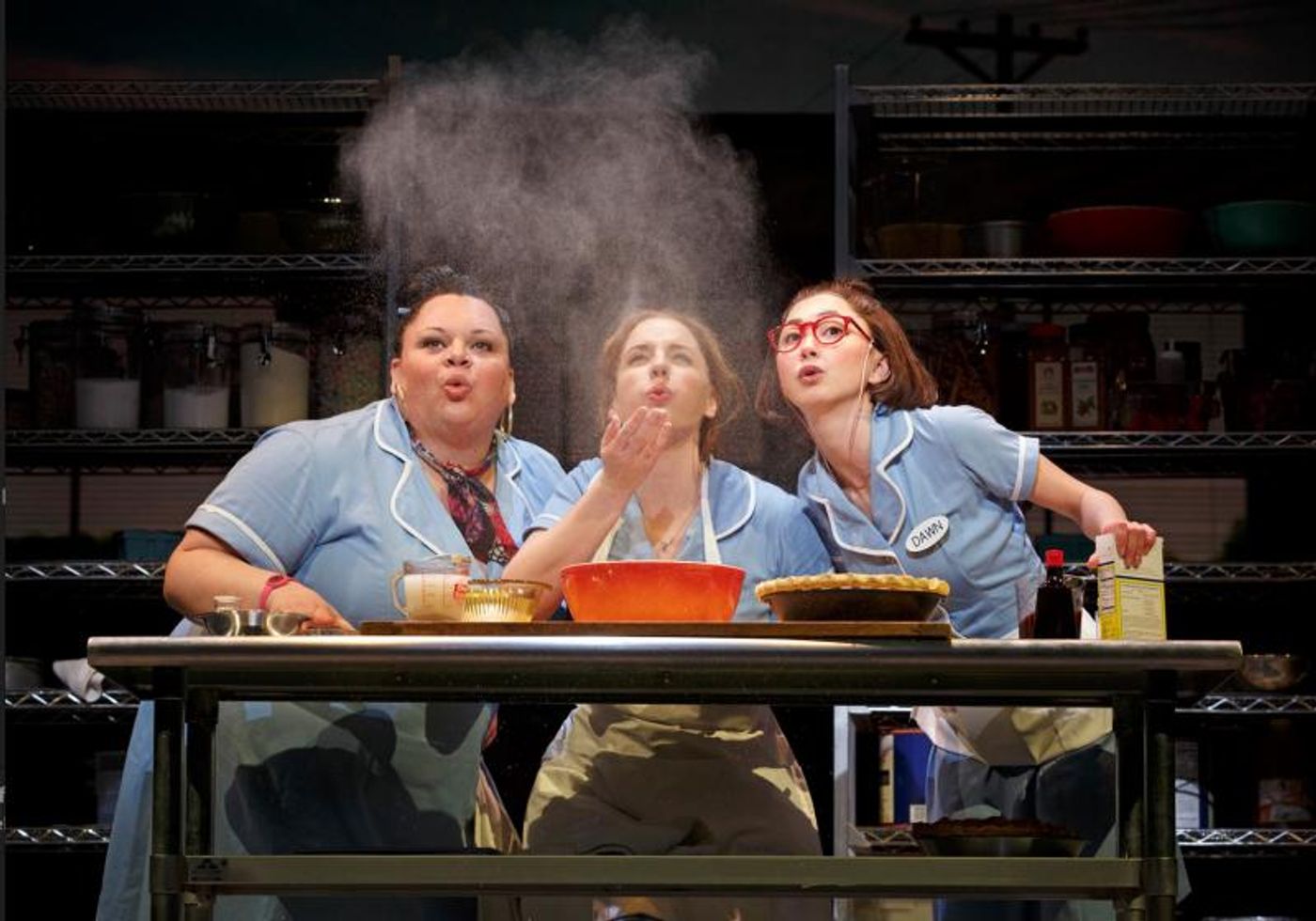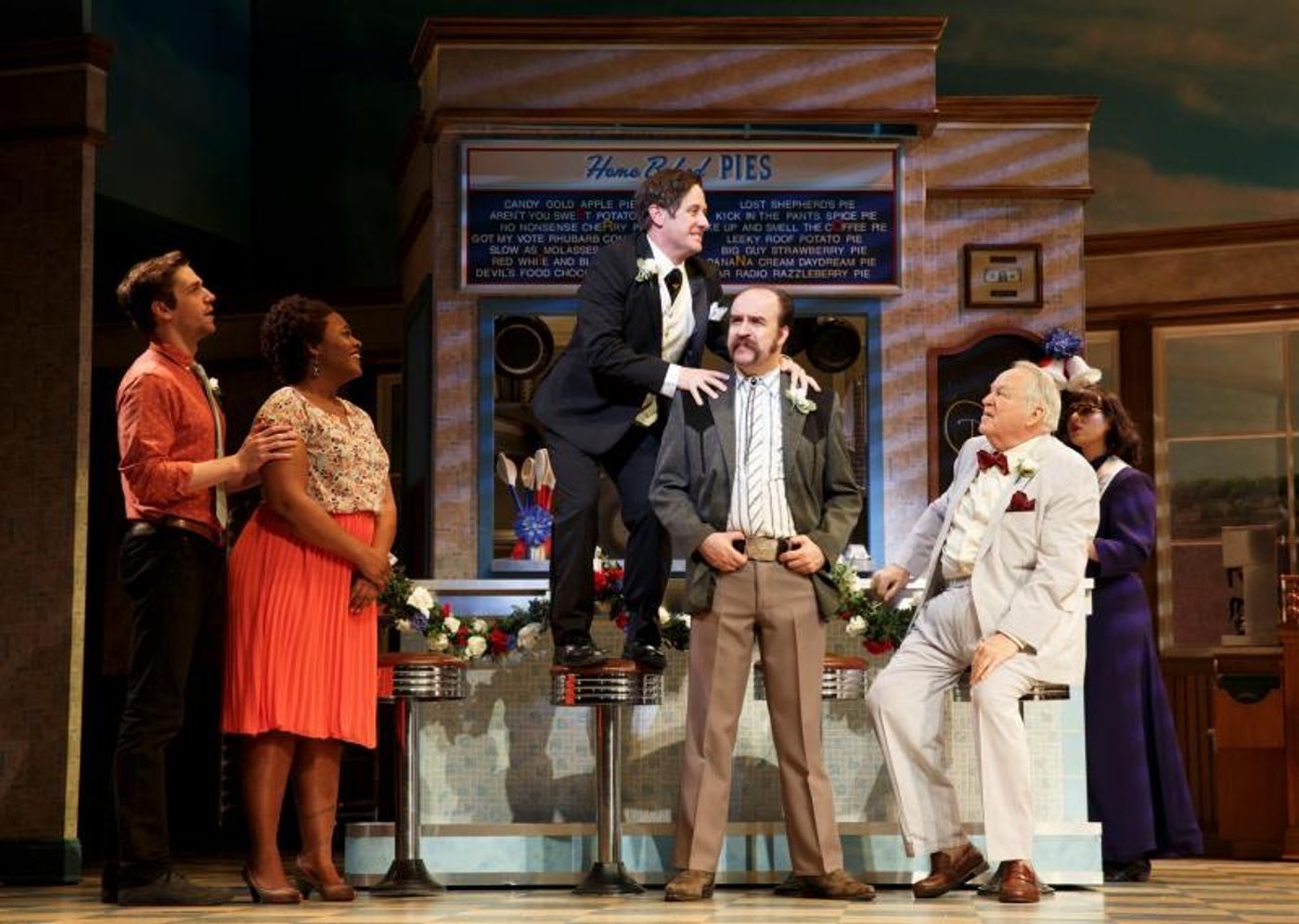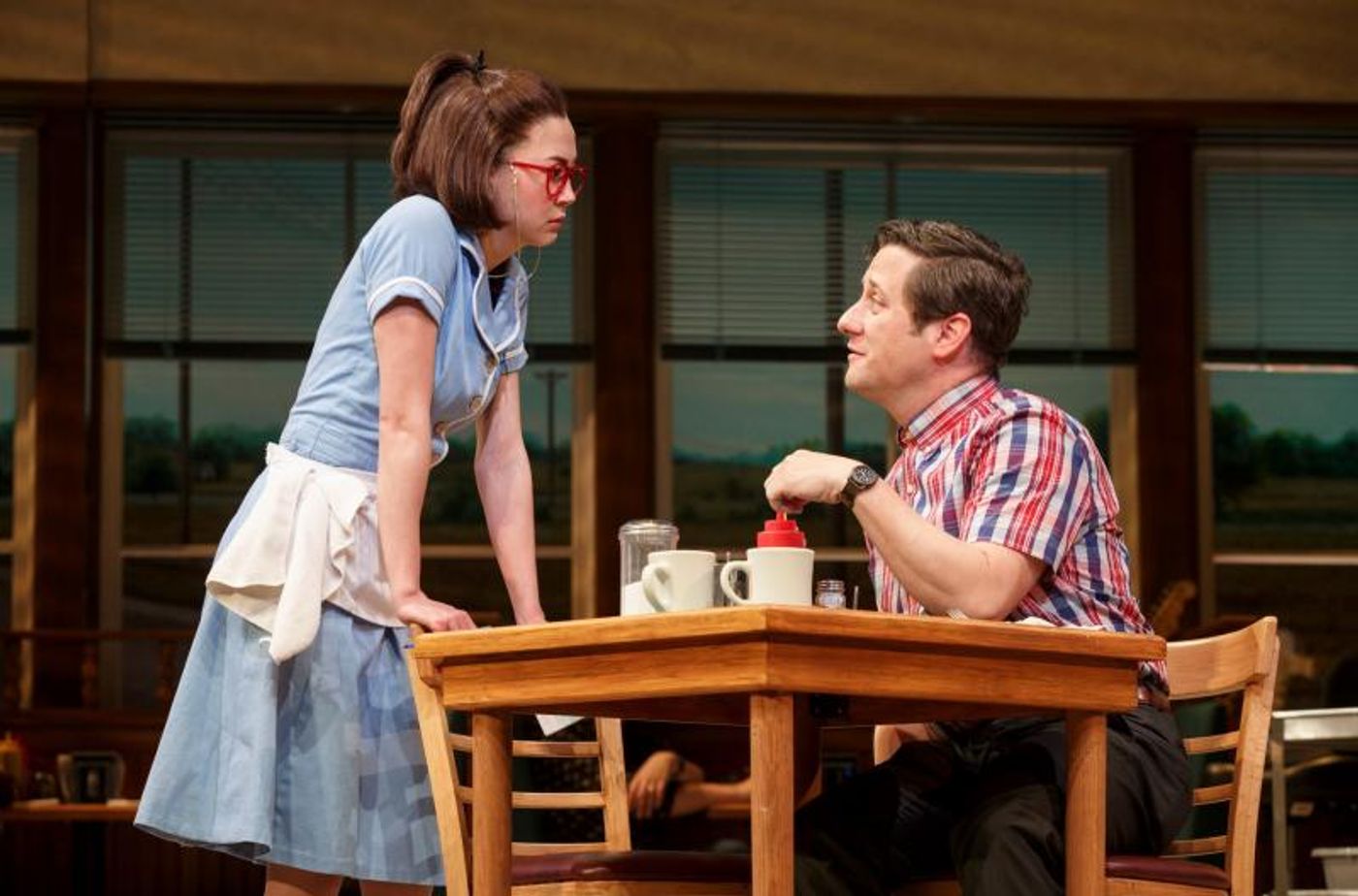Music Director Career Spotlight: Nadia DiGiallonardo Talks Leading The Band Of WAITRESS on Broadway

We're spotlighting different off-stage careers on Broadway to answer some common questions people might have about perusing a career off the stage!
This week we're spotlighting Nadia DiGiallonardo is currently the music director for the Broadway production of Waitress at the Brooks Atkinson Theater, where she can be found playing and conducting Sara Bareilles' score most nights. She is also the music supervisor for the national tour and international companies of Waitress.
Born and raised in Brooklyn, NY, Nadia now lives in Harlem with her two sons, and works as a pianist, music director, arranger, and singer for various projects, including several new musicals in the early developmental stages.
Previous broadway credits include the 2014 revival of Pippin and the 2008 revival of Hair, both with director Diane Paulus. She has performed on multiple TV shows including The Late Show, The Tonight Show, Good Morning America, and The Today Show.
What does a typical day look like for a Broadway MD/Pianist?
Well, it varies depending on what stage of development your show is in. For a show that's well into its run like Waitress, there are days where I only have to show up in the evening and play the show! That's a pretty amazing feeling, because I get to be a mom during the day - pick up my kids from school, go to school events, cook dinner, etc...
During the day I'll find out if we have any understudies going on in the cast, or any subs in the band that night. Sometimes it's just good to know if any adjustments need to be made or if there's anything specific I need to think about if we've got someone new playing the show or going on for a particular role. Once I'm at the theater I make sure I check in with cast members and make sure I give any notes that I had from the previous performance.
Do you have any production duties outside of playing the show at night? What are those?
Most of the time there ARE things to do during the day other than playing the show. Waitress definitely keeps me busy! We are lucky enough to have a show that has been running for a long time on broadway and also has additional productions running around the world.
We've got a tour, a West End production, and new productions starting in other countries. Throughout the run, there are frequent audition days when we are recasting roles in the show. There are press events to organize and play for, social media events where cast members perform. When we are putting up a new version of the show somewhere, the process is a full-time job all over again - auditions, putting a band together, rehearsals, tech, etc....
Sometimes we have new cast members who will be singing songs in different keys than we usually play them in, which means making sure we have sheet music in the right key, making sure the cast members who sing backup vocals are aware of the new key. And then in the day-to-day maintenance of the broadway show, there are usually at least two days a week where we are having understudy rehearsals during the day, as well as rehearsals throughout the rest of the week if we are putting new actors into the show. So the Associate MD and I are either playing those rehearsals, teaching new music to actors, or making sure we've got other people who can cover those rehearsals.

What type of postsecondary education did you pursue?
After high school, I went to Vassar College in Poughkeepsie, NY, where my major was Urban Planning. I definitely wasn't imagining I'd be lucky enough to have a career on broadway at that point.
How important was your education toward your Broadway career?
Interestingly enough, even though I took a lot of music history courses at Vassar and did a lot of classical singing, I didn't take any theater classes or do anything involving musical theater while I was there. Though, I have to to admit, one thing that drew me to Vassar when I was visiting colleges was that they had Steinway pianos in every common room on campus!
So you could often find me playing the piano in a dorm parlor; having a singalong with friends. I always loved theater, and growing up in New York City allowed me to be exposed to theater from a very young age. I had been going to broadway shows as long as I can remember, and I performed in shows starting from age 4, first in community theater in Brooklyn and then at Edward R. Murrow High School, which has an excellent theater program.
I never participated in theater as a musician, always as a singer/actor. As a musician I was playing in cover bands from a very young age, playing rock and pop music. And as a singer in college, I was either singing classical music or singing with our a cappella group, arranging and performing a cappella versions of pop songs. And even though I took music theory in high school I did not continue that in college - something I still regret today!!
My academic focus at Vassar was on design - architectural design, design of urban spaces - I was very interested in urban planning because that was the field my dad was involved in, so I grew up around it and it felt like a really natural fit for me. I definitely wasn't on any path that would be training me for the technical aspects of music directing a broadway show.
BUT, I do have to say, college helped me develop a lot of the social and people skills that are so important when you are working in theater. Sometimes, when you're in a creative process or running a rehearsal, those are the skills that matter the most. The ability to navigate many different personalities and be a true collaborator with a creative team is so important, and my time at Vassar really helped prepare me for that.
My work on musicals in the early stages often feels very inter-departmental, especially shows where the band is on stage like Hair (my first broadway show) and Waitress. The set design team and music department have to work together from day one, and I always enjoy being able to merge my design and music backgrounds during those early meetings!
How did you book your first professional job? Your first Broadway job?
When I graduated from college, I immediately got a job with a German furniture design company. I was drafting plans for these amazing, high-end kitchens and working on designs for the new showrooms that this company was opening all over the U.S. I loved it! That job kept me SO busy, I was doing something I loved, I was traveling all the time, I was saving money - it was great.
However, after a few years there, I did start to miss having music in my life. I found that I was too busy to even keep music as a hobby. I suddenly realized I wasn't ever finding time to sing anymore, to play in bands - I don't think I understood how deeply important all of that was to me until it was gone! The people I worked with didn't even know I had a musical side to me. I quit that job very suddenly - it hit me like a ton of bricks that I wanted to just leave that industry and go find a job involving music! I was in a pretty high position at that company and didn't have anything lined up after I left, but I was very young and the economy was booming at that time, so I was way more fearless than I would be had it been a few years later, even.
I told my HR person that I wanted to leave, and of course she thought it was a huge mistake. I'll never forget it - she said "You're going to feel really good and free for a few months, and then you're going to realize there's no place for you in society." That sealed the deal for me - I left and never looked back! I had NO idea what to do next, but I just jumped into a few activities and hoped for the best. I joined a volunteer choir and also got a paid position in a church choir.
It wasn't much money, but I couldn't believe I was being paid to sing classical music! It was like a dream. I also simultaneously took an unpaid internship at City Center, working in the music prep office for their Encores! series. This is really where it all began for me in terms of a career in theater. It was like starting a new life. I was making edits to orchestras scores, meeting some of the best musicians in town, getting a behind-the-scenes look at a broadway-level rehearsal process, attending orchestra rehearsals.
They put those shows together so fast; I was thrown into a really exciting process, and I just loved it. They weren't using notation software yet, so we did everything by hand, and in that way it was very similar to the world of architectural drafting that I had just come from. The resident music director at the time for Encores was Rob Fisher. I was doing a lot of work in his scores but I had never actually met him. One day he called the music office and I picked up. He asked me who was writing in his scores, because he loved their handwriting.
I told him it was me and that I guess my years of drafting classes proved to be really useful for this job! I guess THAT's the most important way my college education affected my broadway career! haha. And the rest is history. Rob Fisher asked me to start working for him outside of City Center, which I did for many years after that. He is the reason I ended up conducting the revival of Hair in 2008 - my first broadway job. He really became a mentor to me and had so much faith in me.
My first big opportunity outside of theater happened a couple of years before that - I landed the job of the piano player/sidekick on The Tony Danza Show, a morning talk show on ABC. The show ran for two seasons and it was amazing crash course in the world of television and how music is handled for a tv show. I met so many people who I continue to cross paths with and work with now. I had zero professional experience when I got that job, but I had heard about the show and I took a chance and sent a letter to the producers, just telling them that I thought I'd be a great fit for that role.
Thankfully, they took a chance on me and called me in for a meeting. When Hair came around and Rob asked me to music direct it, I remember being terrified. I was going to be conducting and playing with some of the finest musicians around and some of the greatest singers on broadway. Nothing I had done up until that point really prepared me for what was in store, but I learned as I went, and it turned out to me such a deeply special and rewarding time in my life. I can never thank Rob enough for throwing me into that and helping me along the way. It completely changed my life and introduced me to so many people who are like family now, including the director Diane Paulus who I continued working with after that, next on Pippin and now on Waitress.

Are there any internship opportunities in terms of a Broadway music department? What would you say is the best way to gain experience?
Yes, absolutely... as I mentioned, I got my start by interning at City Center. On every show I've worked on, we've had interns helping in the music department. When you intern in the music department of a broadway show, you are fully involved in every step of the music process - it's really a chance to do concrete work in that field, and to meet people who can immediately give you work on their next project. All three of the interns we had on Waitress are now conducting broadway shows! I do think it's absolutely the best way to get a foot in the door.
If someone wanted to reach out to a Broadway MD about internships or mentorship opportunities, what would you recommend?
I have people reaching out to me all the time - some leave letters for me at the theater, a lot of people email me, and I also get a lot of messages through social media. I think this is something social media can be really helpful for. I actually love getting facebook messages and emails from people who are looking to connect and find opportunities to either observe or intern or find an assistant position. New shows are always looking for interns and assistants, and the good ones move up quickly and become unavailable, so it's always helpful to know who else is out there. Most musicians I know are more than happy to invite people to sit in a pit or observe a rehearsal, so I strongly recommend not being afraid to reach out, send the emails, send the facebook messages!
What's the best part of being a Broadway pianist/MD?Well, these days for me, actually playing the Waitress score - this music that I love so much, with people who I love so much, as we start winding down to our closing date in January - is the best part of my day! But in general, I really love the early stages of a musical when the creative team collaboration is happening. I love when all the departments are working together to plan out the show. I also love doing vocal arrangements - that's such a direct connection to my background in choral and a cappella singing, I really enjoy that part of the job. And then of course getting in a room with singers and hearing the songs on actual voices is always a really exciting part of the process!
What is the hardest part of being a Broadway pianist/MD?
Well, the first week of rehearsal for a show is always super fun but also extremely challenging because the first few days are always devoted to teaching all of the music in the show. Usually by the end of the first day my brain is totally melting! But at the same time, I'm having a blast and can't wait for the next day. So it's exhausting and exhilarating all at the same time.
Once you're at the stage where you have the cast AND the musicians all together, it can be challenging to stay inside the details of the show, running the whole ship, playing and conducting the score, while also trying to keep an ear on the big picture. That's why it's so helpful to be able to sit out in the audience periodically and listen to how it all sounds. The sonic experience you have while you're in the pit (or on stage) playing the show is very different than the audience perspective.

What one bit of advice do you wish someone had told you when you were first starting out?
I wish someone had pushed me to practice my sight-reading more! It sounds so obvious, but that is my weak spot and it makes me crazy. I envy the people who can play anything that's put in front of them! I always try to hire associates and assistants who are sight-reading wizards. It takes me a little longer to prepare for a rehearsal day than it might for some other people because I need to make sure I really get familiar with the music ahead of time.
My strength growing up was that I could play by ear, so I leaned on that a lot, and it's what I love to do. But now, in retrospect, I wish I had simultaneously kept up with my sight-playing! On the flip side, if I had to give a piece of advice, I would tell people to play in ensembles and bands as much as possible because having a strong ear and being able to really listen to people around you and play off of them is so important, as is having a large vocabulary of styles to pull from when you're working on a whatever project might come your way. That kind of experience is hard to play catch-up with, so just go out there and play with as many people as you can.
Powered by
|
Videos

